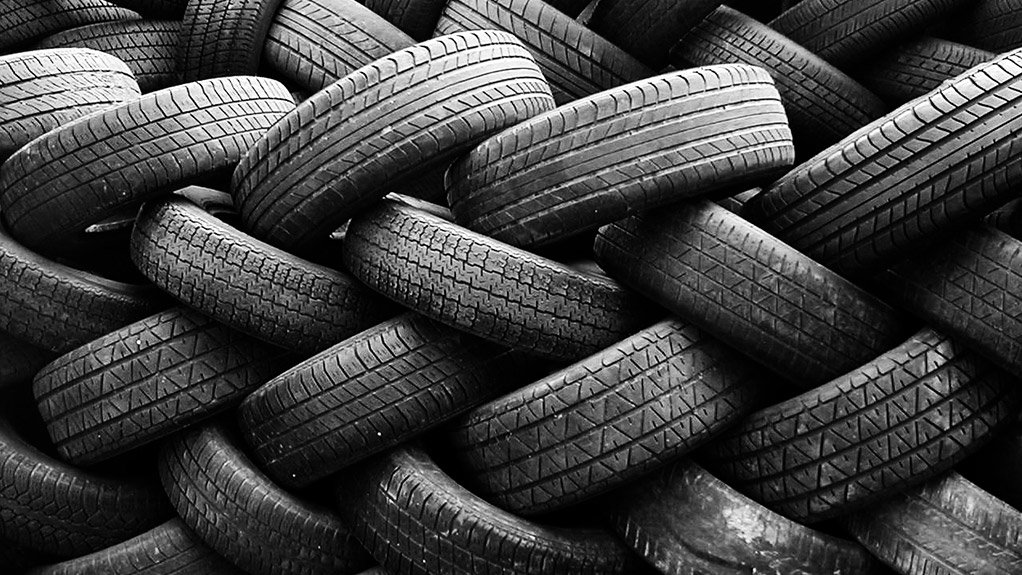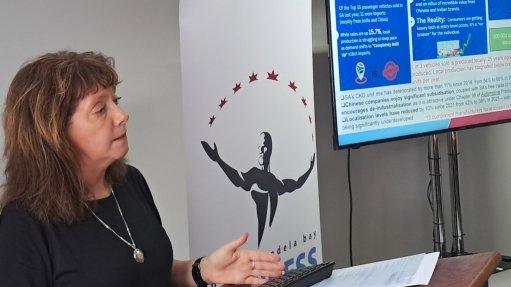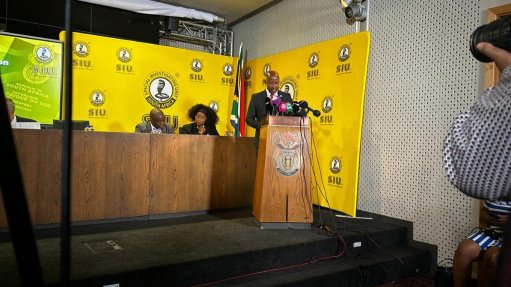Tyre recycling industry body aims to support green procurement
Industry body the Tyre Recycling Industry Association of South Africa (Triasa) has been launched and, in the lead up to the imminent finalisation of the Section 29 Integrated Waste Tyre Plan, Triasa can make an important contribution to this new strategy, says founding member and truck tyre recycling company Mathe Group CEO Dr Mehran Zarrebini.
Triasa's launch comes at a critical time for the local economy and the environment and the Integrated Waste Tyre Plan can help not only to whittle away the ever-growing stockpile of waste tyres, but also create entrepreneurial and manufacturing opportunities and employment, he said.
“Traisa's aim is to unite the different elements of tyre recycling in South Africa and to provide a forum for discussion, knowledge exchange and collaboration on pressing issues within the industry. Our priority is to foster the growth of the tyre recycling industry, promote a circular economy and reduce South Africa's dependency on imported rubber,” he said.
Triasa's primary objectives include encouraging green public procurement and supporting the circular economy by promoting the use of recycled tyre material (RTM) in applications such as road resurfacing, construction and infrastructure projects.
Additionally, the organisation aims to stimulate the use of recycled content in new products so as to replace imported rubber, and support research in tyre recycling, which would foster innovation in end-market applications for RTMs to expand their potential use and create new opportunities within the industry.
“Industry should foster and nurture a strong relationship with government with respect to the implementation and management of the tyre waste management plan of South Africa. We believe that the Department of Forestry, Fisheries and the Environment and Triasa share common goals in safeguarding our environment and ensuring compliance of the waste tyre industry in South Africa,” Zarrebini added.
Triasa members are companies or entities involved in the processing of waste tyres and employ either of the primary recycling technologies currently in use, such as mechanical or ambient grinding of tyres and pyrolysis (decomposition at high temperatures), of tyres and pre-processing, shredding and baling.
Further, all members of Triasa must prove that they are processing waste tyre material, be registered with the Waste Bureau and have supply agreements in place, he said.
“Waste tyre statistics in South Africa are difficult to come by, posing a challenge for those devising a Waste Tyre Plan. Although some role players provide accurate data, others have almost no record-keeping systems.
“This emphasises the need for a national audit on waste tyres in South Africa,” Zarrebini said.
The most recent government statistics available indicate that, in 2018/19, just an estimated 54 460 t of waste tyres were reprocessed.
However, an estimate, based on confirmed data by the Waste Bureau, suggested that an average of 13-million tyres, weighing 300 000 t, are sold in South Africa each year through a network of between 1 400 to 2 000 dealerships.
Passenger vehicle tyres, including sports utility vehicle, four-by-four and light truck radial tyres, contribute an estimated 89% and commercial vehicle truck tyres contribute 11% to the total.
Applying an 18% to 20% reduction in weight between new and waste tyres results in an estimated 240 000 t to 250 000 t of end-of-life tyres a year in South Africa. The majority are returned to dealerships and fitment centres when new tyres are fitted.
Further, an estimated off-road waste tyre stream of 20 000 t/y was added to derive a total estimated yearly flow of waste tyres in South Africa ranging between 250 000 t and 300 000 t. Updated industry data suggest that 206 272 t of waste tyres were generated in 2021, Zarrebini noted.
The road towards efficiently repurposing used tyres has been rocky in South Africa. The Recycling and Economic Development Initiative of South Africa was established in 2013 with the primary goal of creating an environment-friendly waste tyre management solution, but was suspended in 2017 following allegations of mismanagement, corruption and financial irregularities.
Minimal recycling has continued since then, Zarrebini highlighted.
Meanwhile, the disposal of waste tyres is an international challenge. In 2021, global tyre production was estimated to be 1.9-billion units. This includes tyres for on- and off-road vehicles and equipment.
“The rule of thumb to estimate potential tyre waste arising is one-to-one; for each tyre placed on the market, as an original or replacement, one tyre will reach the end of its road life, after which they will be defined as waste,” he explained.
The global tyre waste pile also includes rejects, he added.
In 2021, the 27 European Union member States permanently removed about 4.2-million tonnes of tyres from passenger cars, utility vehicles and trucks, as well as off-road vehicles. This represented an increase of 300 000 t over 2019. There are comparable quantities in other regions, including the Americas, Asia, Australia and the Middle East, he highlighted.
Article Enquiry
Email Article
Save Article
Feedback
To advertise email advertising@creamermedia.co.za or click here
Press Office
Announcements
What's On
Subscribe to improve your user experience...
Option 1 (equivalent of R125 a month):
Receive a weekly copy of Creamer Media's Engineering News & Mining Weekly magazine
(print copy for those in South Africa and e-magazine for those outside of South Africa)
Receive daily email newsletters
Access to full search results
Access archive of magazine back copies
Access to Projects in Progress
Access to ONE Research Report of your choice in PDF format
Option 2 (equivalent of R375 a month):
All benefits from Option 1
PLUS
Access to Creamer Media's Research Channel Africa for ALL Research Reports, in PDF format, on various industrial and mining sectors
including Electricity; Water; Energy Transition; Hydrogen; Roads, Rail and Ports; Coal; Gold; Platinum; Battery Metals; etc.
Already a subscriber?
Forgotten your password?
Receive weekly copy of Creamer Media's Engineering News & Mining Weekly magazine (print copy for those in South Africa and e-magazine for those outside of South Africa)
➕
Recieve daily email newsletters
➕
Access to full search results
➕
Access archive of magazine back copies
➕
Access to Projects in Progress
➕
Access to ONE Research Report of your choice in PDF format
RESEARCH CHANNEL AFRICA
R4500 (equivalent of R375 a month)
SUBSCRIBEAll benefits from Option 1
➕
Access to Creamer Media's Research Channel Africa for ALL Research Reports on various industrial and mining sectors, in PDF format, including on:
Electricity
➕
Water
➕
Energy Transition
➕
Hydrogen
➕
Roads, Rail and Ports
➕
Coal
➕
Gold
➕
Platinum
➕
Battery Metals
➕
etc.
Receive all benefits from Option 1 or Option 2 delivered to numerous people at your company
➕
Multiple User names and Passwords for simultaneous log-ins
➕
Intranet integration access to all in your organisation





















